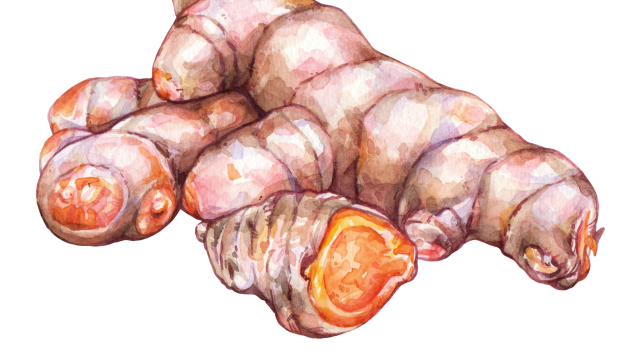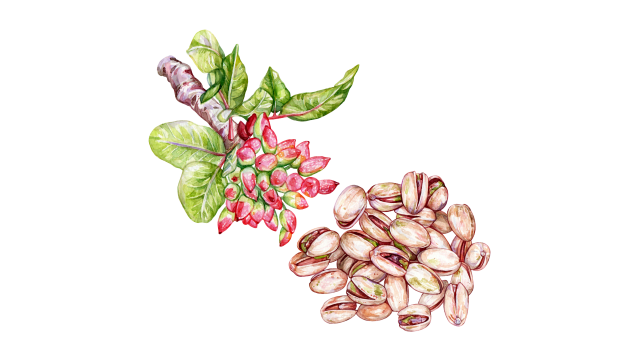Eat Right for Better Sleep

Sleep is essential to wellbeing, just as healthy food is fuel for human functioning.
Studies have shown that over 60 percent of people report inadequate sleep, and as many as 70 percent of Americans suffer from sleep disorders. The Centers for Disease Control and Prevention (CDC) even recognizes insufficient sleep as a serious public health issue.
Stress and worry can cause restlessness, preventing us from falling asleep. So can certain eating habits. Choosing healthy foods is an important factor for supporting sleep.
According to nutrition coach Karman Meyer, the author of Eat to Sleep: What to Eat and When to Eat It, “One-third of Americans aren’t getting enough sleep. Food is one way we can improve sleep in addition to exercise and stress management practices.” She cautions, “We are likely to make poor food decisions when our brains and bodies are lacking sleep.”
Nutrition for Better Sleep
Research shows that diet plays a crucial part in our sleep patterns. Dishes made from whole foods that contain certain micronutrients and dietary elements help in improving sleep. In particular, nutritionists recommend foods containing vitamins D and B, as well as zinc, magnesium, and carbohydrates for improving sleep.
In her book, Meyer also explains how “tryptophan, serotonin, and melatonin are all essential for quality sleep.” Including healthy foods that are high in melatonin, a hormone that promotes sleep, is a good way to tweak your diet. Melatonin is found in milk, fruit, and seeds and can be easily incorporated.
Similarly, tryptophan is an essential amino acid which aids in the production of serotonin, which affects mood, memory, and cognitive functions. As tryptophan is not naturally produced by our bodies, we need to include foods with tryptophan in our diets like nuts, seeds, eggs, and spinach.
Certain ways of eating may be overall better for sleep. Studies suggest adhering to a style of eating called the Dietary Approaches to Stop Hypertension (DASH). This approach, which may improve sleep, incorporates vegetables, fruit, and whole grains rich in potassium, calcium, magnesium, fiber, and protein, while avoiding foods high in saturated fat, sodium, and sugar.
Research also suggests that the Mediterranean diet, which is similarly high in anti-inflammatory, heart-healthy plant-based foods, is a natural way to help you get to sleep. According to a study in the journal Nutrients, “A greater adherence to the Mediterranean diet is associated with adequate sleep duration and with several indicators of better sleep quality.”
Beyond the Mediterranean, traditional wisdom from different parts of the world can also be a source of sleep-friendly foods. Before cafes everywhere sold turmeric lattes to their customers, Indian grandmothers were whisking turmeric powder, peppercorn, and other spices into warm milk at bedtimes for better sleep. It’s no surprise that the milk protein casein contains tryptophan.
Kanchan Koya, a Harvard-trained holistic health coach, calls this warm glass of milk, spiked with spices like cinnamon, nutmeg, pepper and turmeric, “a potent brew” from her grandma’s kitchen for good sleep.
Kanchan Koya’s turmeric milk aids sleep
In Eat to Sleep, Meyer recommends 80 recipes — including popcorn with Parmesan cheese, fruit with cottage cheese, and a host of other evening snacks that may promote better sleep. According to Meyer, food is the most natural way to induce good sleep. Following a diet that includes “sleepy” foods is a natural way to get a good night’s rest.
Nutritionist and dietitian Keri Romerdahl suggests that, “Carbohydrate servings with your evening meal are important as they help the brain release tryptophan and serotonin and melatonin, which are all essential to sleep”.
According to Romerdahl, “It’s best to have lower carbs during the day but also not forgo it with your evening meal,” for better sleep.
Best Sleepy Foods
Plan ahead when shopping so that your kitchen is always stocked with sleep-friendly foods. Vitamins D and B are found in egg yolks, fortified milk, and cereals like oats. Zinc is found in poultry, cheese, pumpkin seeds, almonds, oats, cashews.
• Nuts like almonds, pistachios, walnuts are good pillow pals. Almonds are a source of melatonin, which aids sleep. A handful of raw or toasted almonds makes a good bedside snack. Walnuts and almonds are also high in zinc, a micronutrient that regulates sleep.
• Soybeans and pumpkin seeds contain tryptophan, which calms and soothes the body for good sleep. You can also try a glass of soy milk in the evening, or a warm glass of milk with turmeric powder.
• Botanical blends or warm herbal and floral teas are a great way to initiate sleep. Chamomile has a delicate flavor and contains the antioxidant apigenin, which soothes receptors in the brain that may promote sleep. Lavender tea blends and chamomile teas are recommended for post-natal mothers as a sleep supplement.
• Brown rice or wholegrain bread offer complex carbs that boost serotonin levels to promote sleep.
• Tart cherry juice is also known to improve sleep quality. Fruits like bananas, with their high levels of potassium, make for a good evening snack.
Avoid Sleep Disruptors
Just as the right foods can help with better sleep, poor eating choices and unhealthy foods can disrupt sleep as much as other poor habits. Here are a few simple rules to follow that may help you sleep better and wake up refreshed.
• Maintain a regular bedtime with a gap of at least three hours between your last meal and sleep.
• Don’t eat big evening meals that are high in protein and saturated fats; these can slow digestion and disrupt sleep.
• Avoid stimulants like caffeine late in the evening; some research shows that they can keep you awake and disturb the natural rhythm of your body clock. Refrain from nibbling on chocolate as it has caffeine and may keep you up. Alcohol is a tricky one, as it might lull you to sleep at first, but can throw your sleep cycle badly out of whack.
• Resist spicy and oily foods, which can lead to heartburn and acidity that keep you awake as your digestive system struggles to break down fatty foods and, in some cases, can lead to obstructive sleep apnea (OSA).
• Maintain a sleep and food log to learn how deeply food impacts your sleep.
These simple tools can help you build better sleeping patterns with better food, starting today.
Krystal Mack’s comforting teas make for soothing bedtime beverages
Key Takeaways
- Pick snacks that support sleep.
- Drink herbal teas in the evening for sleep.
- Reduce sugar and caffeine before bed.









